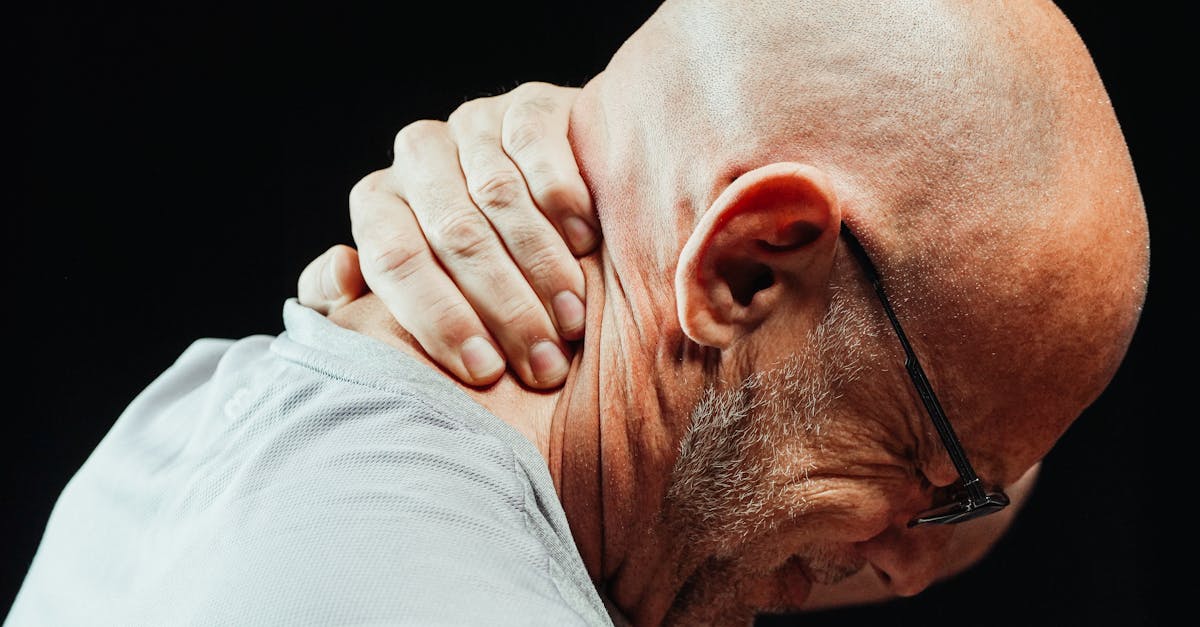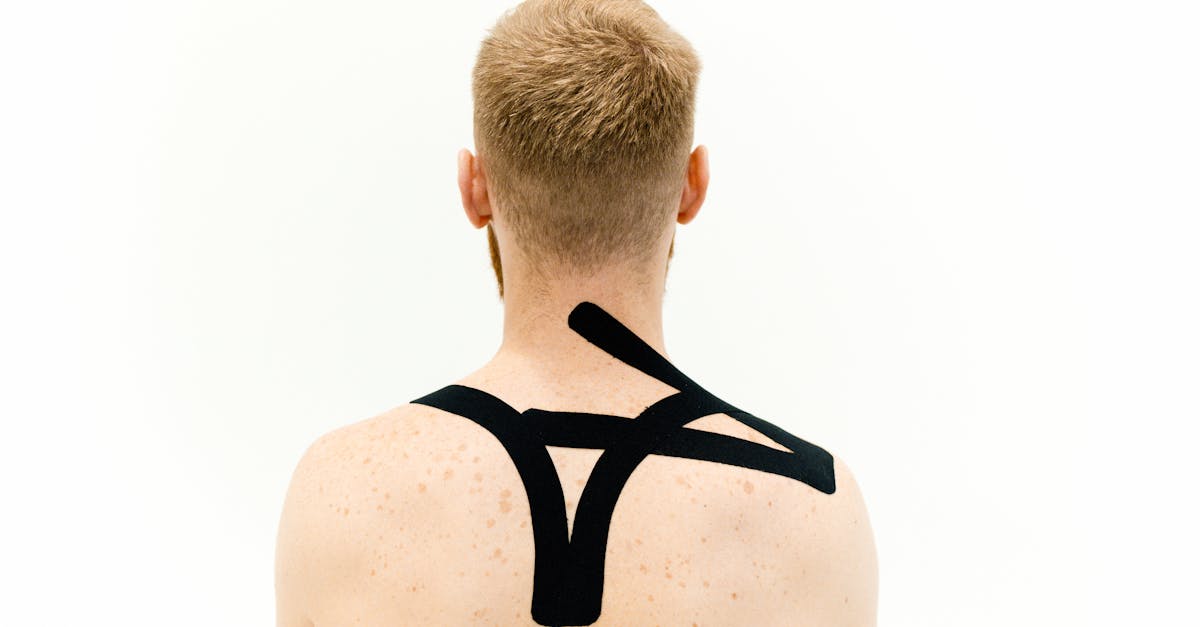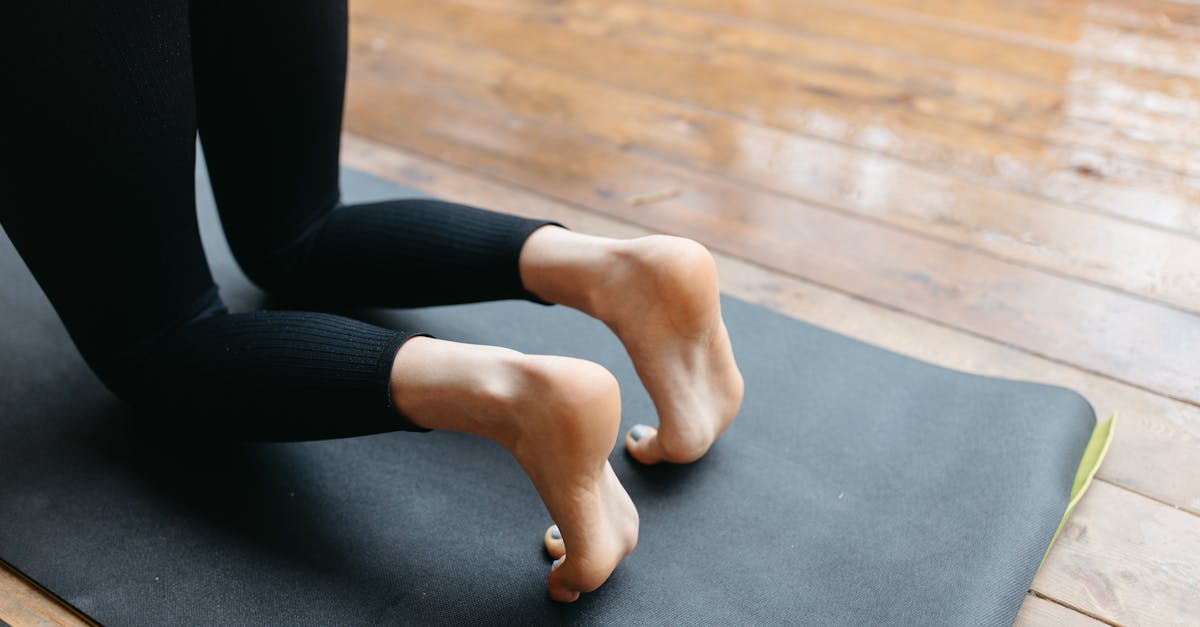Suffering from shoulder pain at night? You’re not alone!
In Short: Shoulder pain disrupting your nights? Discover five effective strategies for shoulder pain relief that can enhance your sleep quality. From optimizing sleep positions to gentle shoulder pain exercises, these innovative approaches focus on reducing discomfort associated with conditions like frozen shoulder and rotator cuff injury. Experience the benefits of improved posture, increased mobility, and a restful night’s sleep. Reclaim your health and wellness at Pulse Align Clinics. Book your appointment today!
Are you struggling with lower back pain and poor posture?
Combatting nighttime shoulder pain: 5 pulse alignment strategies for better sleep can be the solution you’ve been searching for. Many individuals experience shoulder pain at night, significantly affecting their ability to rest. Disorders such as frozen shoulder, rotator cuff injury, and bursitis can lead to discomfort that disrupts sleep quality. By utilizing innovative techniques focused on posture correction and core strengthening, you can find effective shoulder pain relief. Discover how Pulse Align’s approach not only addresses shoulder pain causes but also empowers you to reclaim your sleep and overall wellness.

“`html
Enhancing Well-Being: 5 Strategies for Alleviating Nighttime Shoulder Discomfort
Struggling to find restful nights due to nighttime shoulder discomfort? You’re not alone, and there are effective strategies to help you address this issue through posture improvement and neuromuscular recalibration. Discover how simple adjustments and mindful practices can lead to better sleep quality and overall well-being.
Understanding the Pulse Align Approach
At Pulse Align, we embrace a gentle and innovative approach to wellness that focuses on muscle tone symmetry and promoting natural balance within the body. Our techniques emphasize gentle stimulation to assist in restoring postural integrity and facilitate optimal functioning. By engaging in practices that promote balance, clients can naturally experience a reduction in discomfort and an overall enhancement in their daily activities.
The Holistic Benefits of Pulse Align
Many individuals report positive experiences when exploring holistic wellness strategies. At Pulse Align, we prioritize the body’s natural healing abilities, making our services a prominent choice for those seeking comprehensive well-being solutions. Our clients often mention improvements in daily comfort as they engage in our services, which allow them to feel lighter and more agile in their movements.
Client Experiences That Inspire
Clients have shared their stories of how incorporating Pulse Align techniques has led to a transformative impact on their lives. They describe experiencing improved posture naturally and a newfound ease in everyday activities. This includes testimonials from individuals expressing how they have effectively reduced tension in their neck and shoulders and found joy in moving freely without discomfort.
Join Us on Your Wellness Journey
If you’re ready to take a step toward enhancing your well-being, consider visiting Pulse Align and exploring our comprehensive services. With multiple locations across Montreal, La Prairie, Terrebonne, Chicoutimi, Charlesbourg, Saint-Jérôme, Châteauguay, Sainte-Marie, Les Escoumins, Granby, and Panama City, support is readily accessible. To learn more, book a consultation and find a location near you by visiting our Our Clinics page.
Please remember that while Pulse Align complements your wellness journey, it doesn’t replace ongoing medical care. We encourage all clients to stay in touch with their healthcare teams for any existing medical conditions. At Pulse Align, we focus on facilitating your body’s natural ability to restore its balance, allowing you to find the harmony you deserve.
- Optimize Sleep Position: Favor back or side sleeping to maintain shoulder alignment.
- Use Supportive Pillows: Choose medium-to-firm pillows for proper neck and shoulder support.
- Incorporate Gentle Stretching: Engage in light stretches before bed to relieve muscle tension.
- Create a Relaxing Environment: Ensure your bedroom promotes restful sleep with the right temperature and lighting.
- Establish a Consistent Sleep Schedule: Go to bed and wake up at the same time each day to reinforce your body’s rhythm.

Shoulder pain at night can disrupt sleep and diminish your quality of life. Whether you’re dealing with frozen shoulder, a rotator cuff injury, or tendinitis, finding effective strategies is crucial for restfulness. This article outlines five pulse alignment tips designed to enhance your neuromuscular health, improve posture, and promote a holistic recalibration of your body, allowing for deeper, more restorative sleep.
1. Optimize Your Sleep Position
Choosing the right sleep position is fundamental in shoulder pain relief. Favor sleeping on your back or side with a supportive pillow to ensure symmetrical alignment. Utilizing a medium-to-firm pillow can cradle your head and neck while maintaining the proper posture. This adjustment can reduce strain caused by shoulder pain when lifting your arm and promote nervous system recalibration during sleep.
2. Use Supportive Pillows
Choosing a supportive pillow tailored for your unique needs significantly impacts your sleeping experience. A contoured pillow designed for shoulder support can help maintain spinal alignment and alleviate shoulder impingement. Some individuals may even benefit from using a smaller pillow under the arm. This simple change helps in managing discomfort, especially for those suffering from bursitis and rotator cuff injuries.
3. Incorporate Gentle Shoulder Pain Exercises
Engaging in gentle shoulder pain exercises before bed can greatly relieve tension. Start with light stretching activities like arm circles or wall slides. These exercises foster core strengthening and enhance muscle flexibility—two key elements in alleviating shoulder pain from playing sports and improving posture. Incorporating these movements into your nighttime routine can transform your rest quality and overall daily function.
4. Explore Natural Remedies for Shoulder Pain
Natural remedies such as applying heat or cold can reduce discomfort associated with shoulder pain. Warm compresses relieve muscle tension, while cold packs may help with inflammation. Both methods are effective for tackling shoulder pain at night and supporting better sleep patterns. Consider integrating these remedies into your nightly routine to facilitate relaxation and comfort.
5. Establish a Consistent Sleep Routine
Maintaining a consistent sleep schedule is paramount for optimal recovery. Aim to go to bed and wake up at the same time daily, reinforcing your body’s natural circadian rhythm. Engaging in calming activities like reading or deep breathing can lower stress levels, aiding in sleep restoration and reducing overall discomfort from chronic shoulder issues.
Take Action Toward Relief
Are you ready to alleviate nighttime shoulder pain and rediscover proper alignment? The holistic practices suggested can significantly enhance your comfort and sleep quality. We encourage you to explore personalized exercise plans available at Pulse Align clinics in Montreal, La Prairie, Terrabonne, and Panama City. Book a consultation today to embark on your journey towards deeper sleep and improved wellness. Your path to a pain-free life starts here!
| Strategy | Description |
|---|---|
| Optimize Sleep Position | Favor side or back sleeping to promote shoulder alignment and reduce strain. |
| Supportive Pillows | Use medium-to-firm pillows to provide proper neck and shoulder support. |
| Gentle Stretching | Incorporate light shoulder stretches before bed to ease muscle tension. |
| Create a Relaxing Environment | Ensure your bedroom is cool, dark, and quiet to enhance restful sleep. |
| Establish a Consistent Routine | Maintain regular sleep and wake times to reinforce natural body rhythms. |
| Hydration | Stay hydrated throughout the day to support overall muscle function at night. |
| Mild Movement | Engage in gentle movements before bed to prepare the body for rest. |
| Mindfulness Techniques | Practice deep breathing or meditation to relax the mind and body before sleep. |
| Natural Remedies | Consider warm compresses or soothing methods to promote relaxation pre-sleep. |
| Mind Your Mattress | Select a mattress that balances comfort and support for optimal sleep quality. |

Client Testimonials: Embracing Wellness Through Pulse Alignment for Better Sleep
“Since I began my journey with Pulse Align, I’ve noticed remarkable changes in my nighttime shoulder pain. Living in Mont-Royal, I have struggled with discomfort that kept me tossing and turning at night. After incorporating the suggested alignment strategies, like optimizing my sleep position and using supportive pillows, I now experience deeper, more restful sleep. It’s incredible how these simple adjustments have empowered me to reclaim my nights and restore balance to my life!”
“As a resident of Terrebonne who has dealt with chronic shoulder pain, I was skeptical at first. However, the team at Pulse Align guided me through gentle shoulder pain exercises and holistic recovery techniques that truly work! I have felt significant improvements naturally, and I can finally enjoy peaceful nights of sleep without the burden of discomfort. I highly recommend Pulse Align to anyone seeking wellness solutions!”
“The Pulse Align approach has been transformative for me in Châteauguay. Their focus on neuromuscular recalibration helped me to alleviate shoulder pain that disrupted my sleep. I’ve learned how to create a relaxing sleep environment and integrate gentle stretching into my routine. The holistic support offered has truly enhanced my well-being, allowing me to feel at ease and sleep soundly.”
“In Chicoutimi, I discovered Pulse Align as a holistic solution for my persistent shoulder pain. The simple strategies they provided have made a tremendous difference in my overall comfort at night. By emphasizing posture correction and incorporating light movements, I’ve regained the ability to sleep better than I ever imagined. Anyone in the area seeking to improve their body function should connect with Pulse Align!”
“Sainte-Marie residents looking for a natural way to combat nighttime discomfort should consider Pulse Align. Thanks to their gentle stimulation techniques and emphasis on restoring balance, I’ve experienced a reduction in shoulder tension and muscle tightness—the benefits extend far beyond just improving sleep quality! It’s gratifying to know that this local clinic really understands the unique needs of clients striving for wellness.”
Pulse Align is deeply committed to supporting you and your family on your wellness journey through evidence-based practices and a holistic approach. To explore more about how our services can enhance your quality of life, visit Our Clinics and discover the Pulse Align difference in your community.
Are you struggling to get a good night’s sleep due to shoulder pain? Many individuals face discomfort from conditions like frozen shoulder, rotator cuff injury, and bursitis, which can disrupt restful slumber. This article outlines five effective tips from Pulse Align that focus on neuromuscular health, posture improvement, and holistic recalibration to help alleviate shoulder pain at night. By understanding how to optimize sleep positions and incorporate shoulder pain exercises, you can reclaim the restful nights you deserve.
1. Optimize Your Sleep Position
Your sleep position directly affects shoulder pain at night. It’s essential to favor side sleeping with the right support. For ideal alignment, use a medium-to-firm pillow to cradle your head and neck while placing a pillow between your arms. This setup not only promotes symmetry but also enhances nervous system recalibration. By ensuring that your shoulders are correctly aligned, you can reduce strain on the joints and muscles, ultimately aiding in shoulder pain relief.
2. Use Supportive Pillows
Choosing the appropriate pillow can dramatically impact your comfort during sleep. Opt for a contoured pillow that supports the natural curvature of your spine, aiding in posture correction. This helps maintain alignment for both the neck and shoulders, minimizing tension associated with conditions like shoulder impingement and tendinitis. For extra comfort, consider using a smaller pillow under your arm in addition to your head pillow, further alleviating pressure on the shoulder.
3. Incorporate Gentle Shoulder Pain Exercises
Incorporating light shoulder pain exercises before bedtime can significantly alleviate discomfort. Simple stretching routines, like arm circles or wall stretches, can enhance muscle flexibility and promote core strengthening. These exercises help to relieve built-up tension from daily activities, making them perfect for those experiencing shoulder pain when lifting arms or feeling tightness from prolonged sitting. Integrating these movements into your nighttime routine can make a notable difference.
4. Explore Natural Remedies for Shoulder Pain
Utilizing natural remedies is an effective way to promote relaxation and alleviate discomfort associated with shoulder conditions. Applying heat through warm compresses can ease muscle tension, while cold packs may reduce inflammation. Both methods serve to target specific shoulder pain causes, making it easier for you to fall asleep and stay asleep throughout the night.
5. Establish a Consistent Sleep Routine
Maintaining a regular sleep schedule is vital for optimal recovery. Aim to go to bed and wake up at the same time each day, which reinforces your body’s natural circadian rhythm. Incorporate relaxing activities such as deep breathing or reading before bed, which can lower stress levels and enhance your overall sleep quality.
Our Mission
At Pulse Align, our mission is to deliver evidence-based, client-centered treatments that address the underlying causes of pain and dysfunction. By integrating advanced techniques and technologies, we strive to empower each person to take control of their health, ensuring a high standard of care, lasting relief, and an improved quality of life.
Learn more about this approach and available services at www.pulsealign.com and find a location near you here.
Experience Relief with TAGMED’s Neurovertebral Decompression Therapy
TAGMED offers innovative Spinal Decompression Therapy, a non-surgical solution specifically designed to address moderate-to-severe disc issues such as herniated discs, bulging discs, spinal stenosis, and more. By gently reducing pressure on the affected discs and nerves, this specialized technique enhances mobility, alleviates pain, and supports your body’s natural healing process. If you’ve reached a plateau with other treatments, discover how TAGMED’s evidence-based decompression approach can help you resume an active, comfortable life.
Have you tried conventional treatments and still struggle with persistent back pain due to a severe disc condition?
TAGMED’s neurovertebral decompression applies a controlled, progressive traction force to the spine. This method increases the space between vertebrae, reducing pressure on intervertebral discs and nerve roots, while promoting better fluid circulation in the targeted area. This process effectively lowers inflammation and relieves pain, making it a reliable, non-invasive solution for individuals suffering from chronic back issues, including conditions like disc bulge and facet syndrome.
One of the most compelling aspects of TAGMED’s neurovertebral decompression therapy is its ability to effectively alleviate chronic pain and symptoms linked to conditions such as degenerative disc disease and foraminal stenosis. By reducing pressure on nerve structures and optimizing fluid circulation around the discs, this technique helps speed recovery and improve the quality of life for a wide variety of patients seeking relief from persistent discomfort.
Compared to other commonly used treatments like pain medications, corticosteroid injections, and surgery, TAGMED’s neurovertebral decompression stands out. It presents distinct advantages, including no invasive interventions and minimized medication-related risks. Patients often find it a safer, evidence-based alternative that facilitates a faster path to recovery.
Real-world testimonials reveal the profound impact of TAGMED’s neurovertebral decompression therapy. Many patients have shared their experiences of lasting pain relief, with improvements that allow for quicker resumption of everyday activities. These firsthand accounts underscore the tangible benefits of this therapeutic approach, illustrating not only an enhanced quality of life but also reduced dependence on pharmaceuticals.
In conclusion, TAGMED’s neurovertebral decompression therapy offers a holistic and effective solution for those battling chronic pain and related symptoms. This method not only prioritizes safety and well-being but also aims to promote overall health by providing long-term relief through advanced, evidence-based techniques.
Conclusion: Unlocking Restful Sleep with Pulse Align
In the quest to combat nighttime shoulder pain, the five Pulse Align strategies focus on posture correction and holistic health. By implementing these innovative techniques, individuals can achieve improved posture, reduced discomfort, increased mobility, and overall enhanced well-being. Pulse Align’s gentle and non-invasive methods allow the body to recalibrate naturally, promoting a healthier lifestyle without the need for invasive procedures.
Clients frequently share positive experiences, highlighting how interacting with Pulse Align has transformed their nighttime comfort and daily lives. They commend the supportive environment which fosters natural pain relief, ultimately encouraging them to rediscover their strength and embrace each day with renewed vitality. This client-centric approach emphasizes the importance of holistic care that meets individual needs.
Are you ready to take the next step in your wellness journey? Discover the Pulse Align difference today! Explore our website to learn more and schedule your consultation at a clinic near you. Let us support you in reclaiming your health with our commitment to neuromuscular recalibration and a focus on your body’s natural healing abilities. Your path to a more balanced, pain-free life starts now.

Do you suffer from a chronic condition that responds little or not at all to conservative treatments?
Introducing Pulse Align, a pioneering and non-invasive method designed to help restore your body’s natural balance and posture through gentle and imperceptible pulses. By focusing on optimal muscle tone symmetry, Pulse Align aims to support the body’s innate ability to recalibrate, which may help alleviate tension and discomfort encountered during the night. This innovative approach promotes overall well-being, nurturing a more restful and rejuvenating sleep experience.
At Pulse Align, the focus is not on pain or specific conditions but rather on empowering the body to recalibrate itself naturally. Clients often experience incredible improvements in overall comfort and posture, leading to a sense of balance and well-being. Our approach encourages individuals to embrace their body’s capacities, discovering newfound ease and relaxation in their daily activities and restorative sleep.
What sets Pulse Align apart is our commitment to personalized attention, ensuring that each client receives the support they need on their wellness journey. Many individuals who have engaged with our services have shared inspiring testimonials about their enhanced comfort and overall wellness. They report notable improvements in tension, balance, and daily functionality, highlighting the transformative impact of nurturing the body’s natural alignment. Clients frequently express appreciation for how this gentle, holistic method complements their wellness, allowing them to move towards vibrant health without reliance on invasive measures.
We invite you to explore how Pulse Align can support you and your family. With locations across vibrant cities such as La Prairie, Mont-Royal, and Terrebonne, embarking on your wellness journey is just a consultation away. Our services are designed to work alongside your existing healthcare team, complementing their guidance while prioritizing your family’s holistic health and comfort. To learn more about our offerings and to find a nearby location, visit Pulse Align and book your consultation. Remember, every step towards wellness is a step towards unlocking the body’s natural potential for balance and rejuvenation.
Frequently Asked Questions
Shoulder Pain
Can medications relieve shoulder pain?
Anti-inflammatories, painkillers, and sometimes steroid injections can provide temporary relief.
Can I do weight training with shoulder pain?
It’s better to avoid aggravating exercises and consult a professional to adjust your routine.
Can a shoulder dislocation cause chronic pain?
Yes, a poorly managed or repeated dislocation can lead to instability and long-term shoulder pain.
Is shoulder pain related to poor posture?
Yes, slouched posture, rounded shoulders, and inadequate back support can contribute to shoulder tension.
Is physical therapy effective for shoulder pain?
Yes, physical therapy includes exercises, stretches, manual therapy, and postural advice to restore shoulder function.
Does poor blood circulation influence shoulder pain?
Reduced blood flow may slow healing and increase stiffness, contributing to persistent pain.
Can I prevent shoulder pain?
By maintaining good posture, strengthening the rotator cuff, avoiding excessive repetitive motions, and warming up before exercise.
Can swimming cause shoulder pain?
Yes, especially in regular swimmers. Repetitive movements can lead to tendinitis or overuse injuries.
Can I do self-massage with a tennis ball?
Yes, placing a tennis ball between your shoulder and the wall can gently massage sore spots and improve circulation.
What is the rotator cuff?
It’s a group of four tendons stabilizing the shoulder joint and contributing to arm movements.
Adam Blanc understands that shoulder pain can do more than slow you down—it can impact your entire quality of life. As a Shoulder Pain Awareness Advocate at Pulse Align, he’s dedicated to showing readers that genuine relief is not just possible, but within reach. Drawing on the latest research, Adam combines expert insights with compassionate guidance, inspiring people to move toward greater comfort and mobility. His approach is about more than just managing symptoms; it’s about empowering individuals to rediscover their strength and embrace every moment, free from the constraints of pain.
Medical Disclaimer
The information and advice provided on this site do not replace the advice, diagnosis, or treatment of a healthcare professional. Please note that the author of this article is neither a doctor nor a specialist in a medical specialty as defined by the Collège des médecins du Québec. Manual medicine, functional medicine, and sports medicine as described on this site exclude any medical treatment or diagnosis made by a doctor or medical specialist. Always consult your doctor for any medical questions. For more details, please read our complete Legal Notice.




